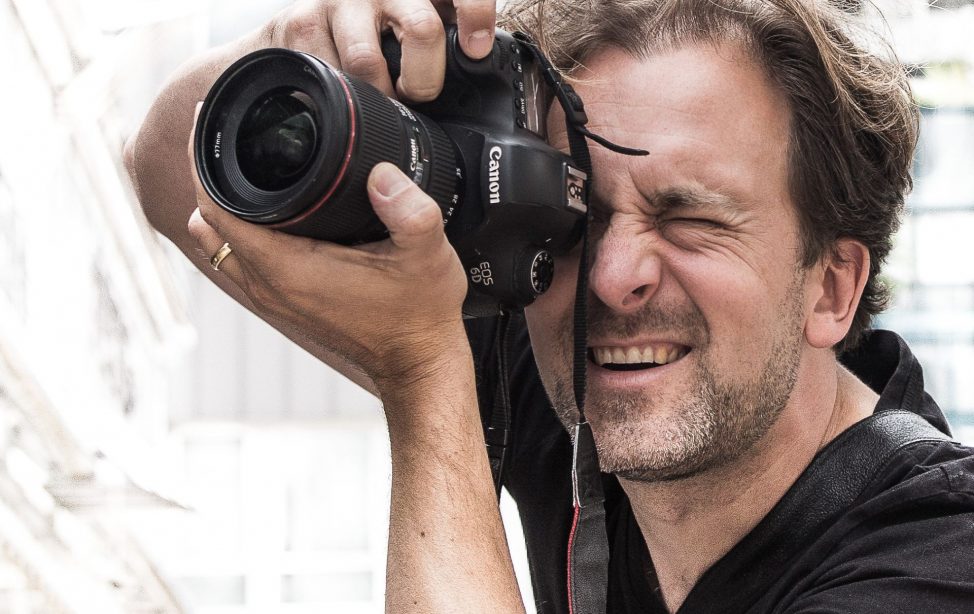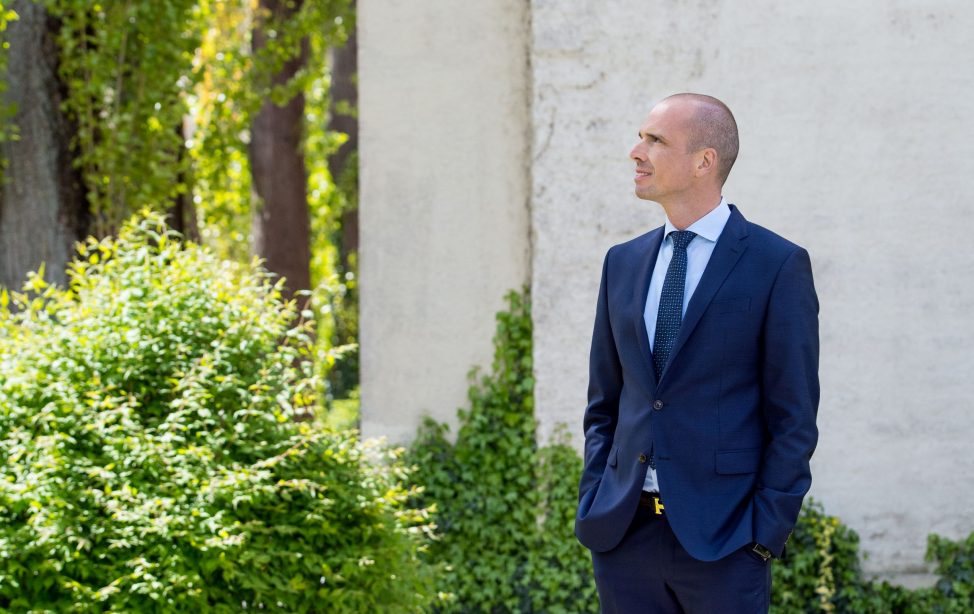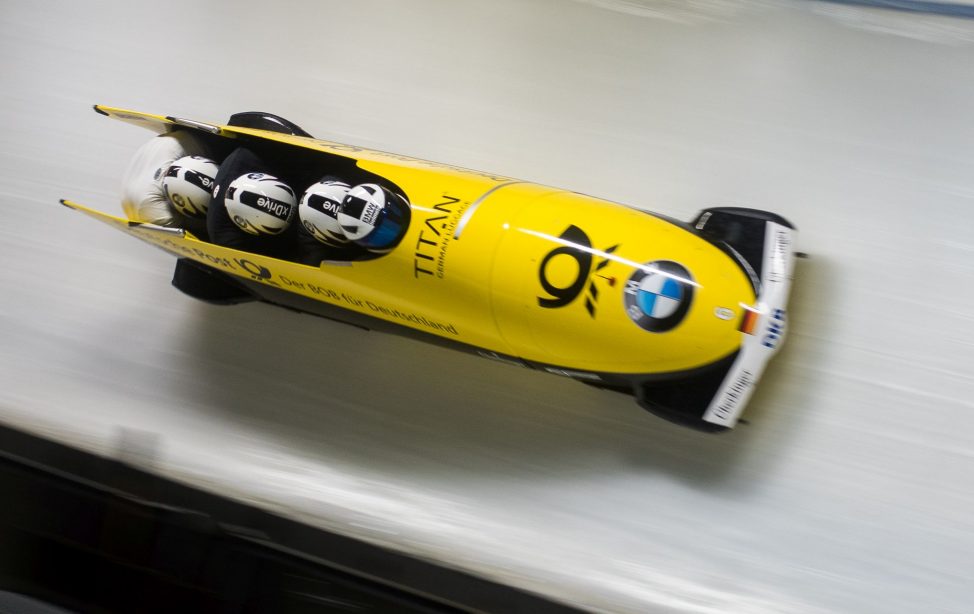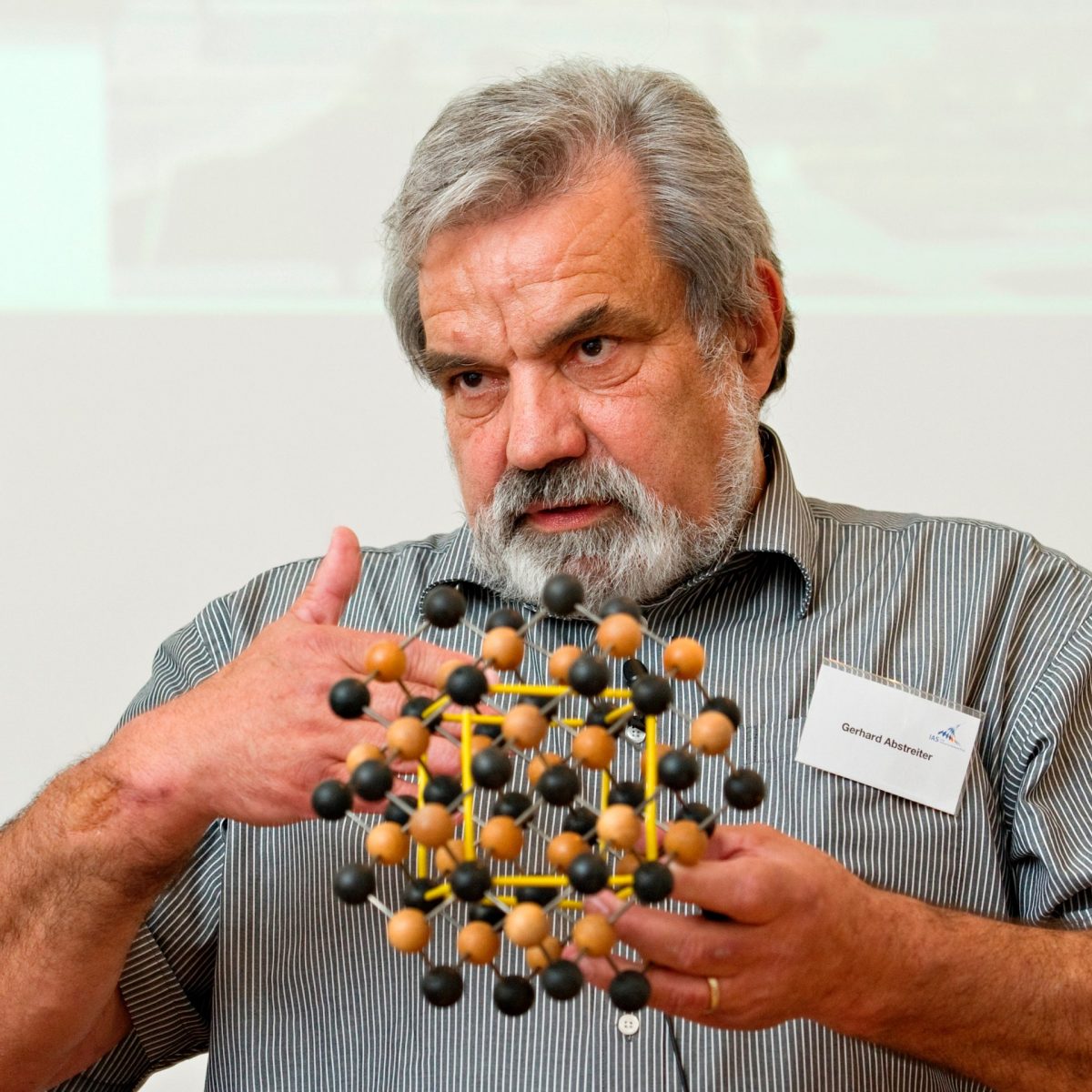
TUM Alumni and professor Gerhard Abstreiter explains the pioneering work in the area of Semiconductor Physics(Image: Astrid Eckert/TUM).
Also in his further career Gerhard Abstreiter continued to pioneer, for example with his basic research on quantum effects in nanostructures, biosensor technology, micro-, nano and optoelectronics. Being the author and co-author of more than 700 scientific publications, which have so far been referenced about 30.000 times, the TUM Alumni is among the leading scientists in the area of Semiconductor Physics and Nanotechnology worldwide.
More than 90 doctorate students
None of this was planned. “Long into my studies I basically didn’t know the true meaning of Experimental and Theoretical Physics. I just wanted to understand the universe, that’s why I chose to study Physics.” It was more his teachers and lecturers, who became mentors and important initiators during every step of his schooling and academic education and who gave him access to the research areas, in which he was going to be this successful, in the first place.
He always wanted to show this kind of support to the young up-and-coming scientists at TUM in the framework of his teaching and has supervised more than 90 doctorates and hundreds of diploma students. “Teaching was one side of my academic life I gained a lot from”, Gerhard Abstreiter says, “the other one was and is research, its management and and its funding”.
For me research is always connected to the question of how new insights can be generated with the largest success.
Nanotechnology at TUM
Almost 20 years later Gerhard Abstreiter is asking TUM President Wolfgang A. Herrmann for the “long overdue” expansion of the institute for his 60. birthday. Within a very short period of time he wrote the proposal to get the necessary funding and was able to once again convince the decision-makers with his progressive thinking and his capacity for innovation. “Back then 35 proposals were received, 15 were approved and one was recommended with highest priority”, Abstreiter tells us smiling humbly, yet proudly. “He simply is a true Bavarian after all”, Wolfgang A. Herrmann supposedly said about Abstreiter’s candid and at the same time effective nonchalance.
Since 2015 Gerhard Abstreiter is retired. In his role as Emeritus of Excellence he is still working for TUM in research and research funding and as a consultant for strategic appointments. “I really enjoy finally having more time to work in my father in law’s carpentry workshop and to make, for example, a wooden canoe with my son or longboards for my grandchildren or to design a garden house for the Afghan immigrant family with 3 kids that I am supporting.”
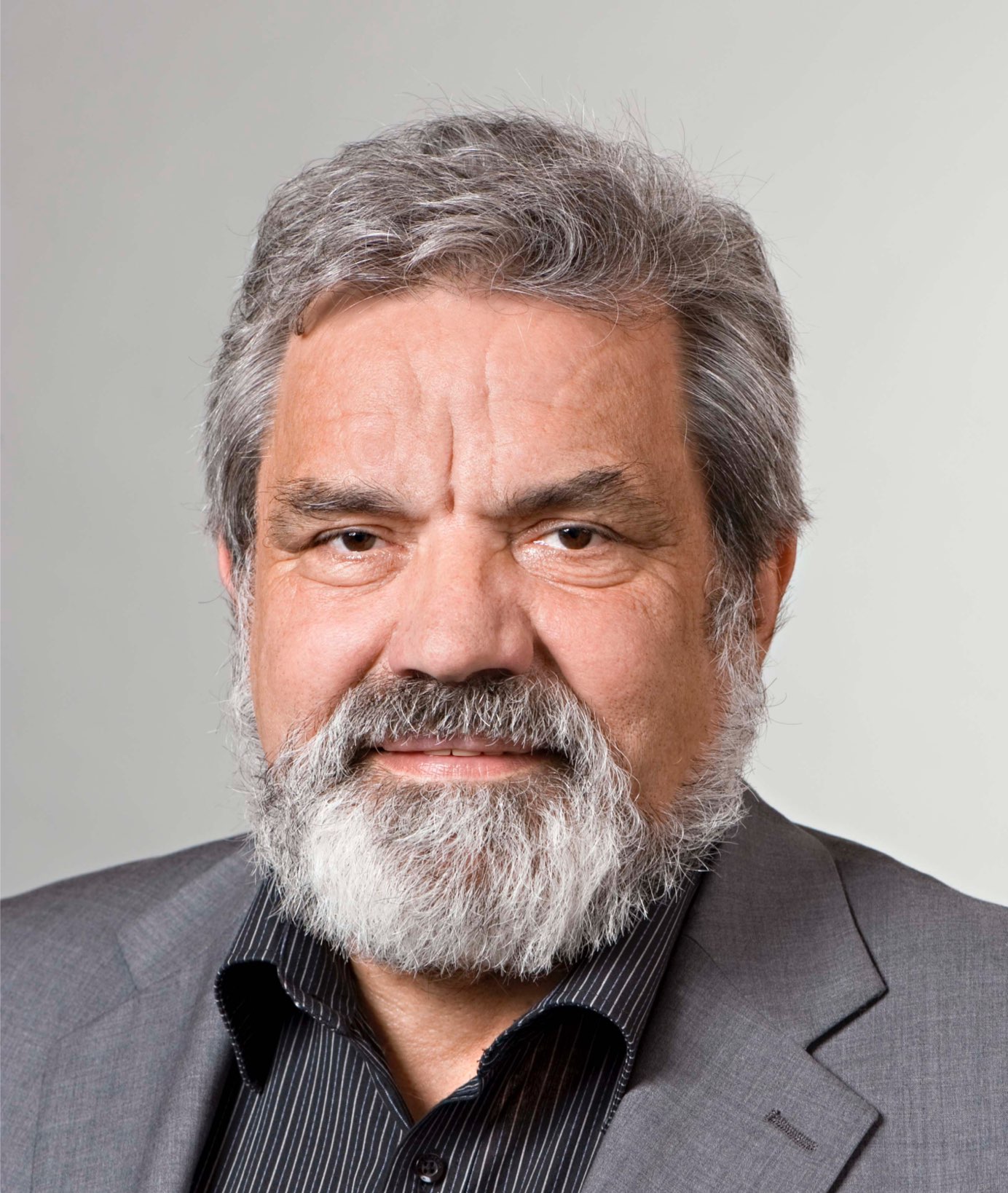
Gerhard Abstreiter (Image: Astrid Eckert & Andreas Heddergott/TUM).
Diploma Physics 1973, doctorate 1975
After his studies of Physics at TUM Gerhard Abstreiter earned a doctorate from here in 1975 and continued to do research at Max Planck Institute for Solid State Research in Stuttgart and Grenoble.
From 1987 until 2013 he was professor for Experimental Semiconductor Physics I at TUM and founding director of Walter Schottky Institute (WSI). Furthermore, he initiated and established the Center for Nanoscience and Nanotechnology of TUM (2008-2010) . He was the spokesperson of several collaborative research centres and co-initiator and -speaker of the Cluster of Excellence “Nanosystems Initiative Munich”.
From 2013 until 2015 he managed the TUM Institute for Advanced Study (TUM-IAS). As a visiting lecturer he taught at the University of Santa Barbara, at Columbia University in New York and at Tokyo University, amongst others. In 2007 he was voted into the Bavarian Academy of Science; furthermore he is a member of acatech (German Academy of Science and Engineering).
He received several awards for his cutting-edge research, for example the Stern-Gerlach Medal, Friedrich Wilhelm Joseph von Schelling Award, Max Born Award and Medal, Gottfried-Wilhelm-Leibniz-Award of Deutsche Forschungsgesellschaft (1987).
Gerhard Abstreiter has been married since 1970 with two children and three grandchildren.
Professor Dr. Gerhard Abstreiter was appointed TUM Emeritus of Excellence by TUM president Prof. Dr. Wolfgang A. Herrmann in 2015.
